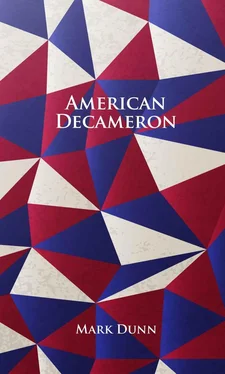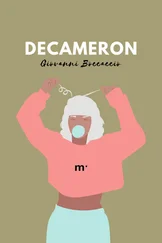“Depends on whether we have to go below three hundred feet. Three hundred feet, the price takes a big jump. But you probably already knew this.”
Dana nodded. Yes, he knew.
Dana had three beers. He was a little fuzz-brained from having skipped lunch. “You want that I should drive you to the train station?” Larry asked. “You can pick up your car tomorrow or the next day. I know the owner of this bar. He’ll let you keep it parked out back if you like.”
“No. I think I’ll be all right.”
Larry walked Dana out to his car. He put him behind the wheel. Then he said, “Don’t move. I’ll get you some coffee. We’ll have a little coffee until you feel sharp enough to head home.”
Dana was about to decline. Something stopped him. Something in Larry’s solicitous look. Something in his concerned voice.
The two men sat drinking coffee as darkness began to settle in.
“You had to keep moving,” said Dana without preamble. He was looking straight ahead, staring at the middle distance and seeing nothing but the jungle. “You fall down, you go for water to slake your thirst, you slip off to take a crap, they shoot you, or slice your throat open. Those of us who couldn’t keep up, who moved a little too slow got picked off by the buzzard squads. I didn’t have a helmet. The sun was burning my brain. Brett was next to me — we’d been right next to each other the whole time. Brett was from Tucson. He said he was used to the heat. Me, from Jersey, the sun was going to be my death. He watched me fading. I started stumbling, my legs pretzeling up. He gave me his helmet. He didn’t need the helmet, he said. He was from Tucson. I revived. Brett revived me, kept me moving forward. The last two days we’re walking like the dead — one foot in front of the other. Little food, little water, but there’s something that keeps me going. It’s how much Brett wants me to keep going. In the midst of all the death, I represent life to him and he represents life to me.
“We get to San Fernando and they put us into boxcars. And we’re packed so tight in there we can’t sit down. We’re in that boxcar from early in the morning until late that afternoon. Pushed up together like — I’ve got nothing to compare it to. You stop thinking at a time like that. Your brain just shuts down. It gets taken over by a practical need to survive, to keep taking in each new breath. I’m pushed against Brett. Pushed up so close I can feel his heart beating against my back. We’re all just organs and bones at this point — came into this march already half starved to death after those last grueling weeks in Bataan. I can feel his heart. The heart of the man who saved my life.
“And then…” Dana stopped and took a deep breath, willing himself to finish the story. “And then I don’t. Just like that, Brett’s dead. He’s a standing corpse. One of many. But I don’t think about the others. I’ve seen death fifty times over. I think only of Brett. How he did something for me to keep me alive, but I couldn’t do anything for him. I just stood there and let him die.”
Dana swallowed the last of his coffee from the cardboard cup, shook his head.
“Just let him die.”
Dana grew silent as Larry stared out the window, thinking. Then Dana tried to say something. He struggled to form the words. He was like a stuttering boy unable to get even the first syllable out of his mouth. Finally, it came: “Are you Brett?”
Larry didn’t answer for a long moment. Then, as if it were the most natural thing in the world for him to do, he nodded.
“Where you been, Brett?”
“Been away.”
“How you doing, Brett?”
“Doing good, Dana. Doing good.”
In the darkness Dana wept. He leaned his head toward Larry. He put his right ear against Larry’s chest. “I can hear your heartbeat.”
Larry laid his hand upon Dana’s convulsing head.
“Do you forgive me?” asked Dana, his voice slightly muffled against the fabric of Larry’s work shirt.
“Ain’t nothing to forgive, pal. But if that’s what you want—”
“It’s what I want.”
“Then I forgive you. Let it go, buddy. Let it all go.”
Tears moistened Larry’s eyes. He’d also seen men die. Men who were his friends.
Larry kept his hand on Dana’s head until it was time to send him home.
A week later, at a depth of one hundred and forty feet, Larry Jr. and his dad hit an artesian vein with good pressure and a great flow.
1949 BALL CHANGING IN MISSISSIPPI
It was one of the middle Saturdays of the month — I can’t remember which one — that my mother, just as she did every Saturday, dropped me off at the Dixie Theatre at Broadway and Main to compete in our local radio station’s weekly Kiddie Talent Show. The contest took place during the hour just before the start of the Saturday morning matinee, up on the theatre’s stage. The broadcast went out all over Yazoo County. Each of the contestants who participated got a complimentary ticket to that day’s movie bill (which usually included a cowboy double feature, one chapter of an adventure serial, and a Disney cartoon).
But there was something different about this particular Saturday, which is the reason that it has always remained so clear and fixed in my head. Let me just start off by saying, simply: a few things happened. I’ll tell you one of them right off the bat: Carthy McCharlie fell into the orchestra pit.
Now, it wasn’t a real orchestra pit. It was just a narrow recessed space between the first row of seats in the picture show auditorium and the raised lip of the stage. And a good third of that pit was filled up with Mrs. Vonda Taliaferro’s upright piano. It had been put on cement blocks so Mrs. Taliaferro could better see the stage from atop her sheet music. Not that Mrs. Taliaferro was one to ever use sheet music. She played all of her songs by ear and sometimes she would inadvertently change key in the middle and you’d have to make the necessary adjustments if you were singing along with her or else you’d end up sounding hopelessly off-key.
Tilted at a jaunty angle upon Mrs. Vonda Taliaferro’s curly bob was a perky moss-green straw hat. It was flat on the top and had hardly any brim at all. It looked — as did all of Mrs. Taliaferro’s millinery confections — fairly ridiculous. But to the little undiscerning girl I once was, it was quite charming. Unfortunately, Mrs. Taliaferro’s special Kiddie Talent Show hat rarely stayed on her head for the whole show. It had a habit of flying right off whenever she was required to play a lively Broadway show tune or a dramatic march that involved some measure of bodily attack upon the keys.
Maryanne and Piddy and I didn’t have to worry about Mrs. Taliaferro’s adventures in the wilderness of piano key changes. Because we were dancers. We tapped as a trio, Maryanne and Piddy and I, and we made our teachers, Hiram and Helene Odell of Hiram and Helene’s School of Dance and Loveliness, punch-proud.
The competition was stiff that Saturday. There was a little girl named Sue Ann McGeorge — also a student of Hiram and Helene’s. She was their star pupil, in fact, and could generally be expected to tap rings around all the rest of us. If I’m remembering correctly, this particular Saturday, she sang and danced to “Ma, He’s Making Eyes at Me,” ending her routine with her usual audience-pleasing leg-split. Several months later, when the whole country was humming songs from South Pacific, Sue Ann would dance to “I’m Gonna Wash that Man Right Out of My Hair,” and she’d trade her signature sequined top hat for a sequined bathing cap.
There was another girl a little older than us whose name was Geneva Abdoo. Geneva sang “Aloha ’Oe” while doing a hula dance. You couldn’t take your eyes off of Geneva. You see, she was exotic. She was half Italian and half Lebanese — part of the large Lebanese and Syrian community in town. Geneva had coal-black hair, rich olive skin, and big black eyes. She wore a grass skirt and a man’s floral Hawaiian shirt that she tied off just north of her belly button to show a little of her olive-toned midriff. Her undulating arms helped to tell the story she was singing.
Читать дальше












